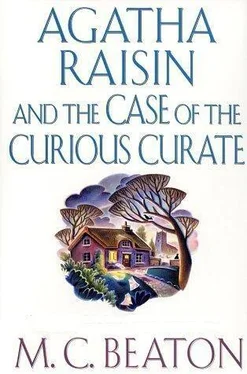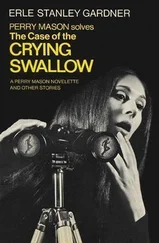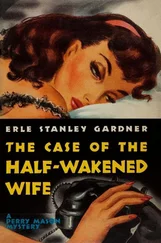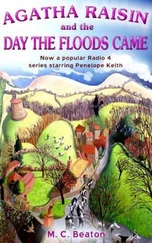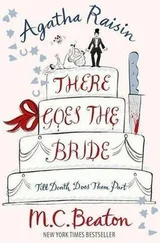M.C. Beaton - The Case of the Curious Curate
Здесь есть возможность читать онлайн «M.C. Beaton - The Case of the Curious Curate» весь текст электронной книги совершенно бесплатно (целиком полную версию без сокращений). В некоторых случаях можно слушать аудио, скачать через торрент в формате fb2 и присутствует краткое содержание. Жанр: Старинная литература, на английском языке. Описание произведения, (предисловие) а так же отзывы посетителей доступны на портале библиотеки ЛибКат.
- Название:The Case of the Curious Curate
- Автор:
- Жанр:
- Год:неизвестен
- ISBN:нет данных
- Рейтинг книги:5 / 5. Голосов: 1
-
Избранное:Добавить в избранное
- Отзывы:
-
Ваша оценка:
- 100
- 1
- 2
- 3
- 4
- 5
The Case of the Curious Curate: краткое содержание, описание и аннотация
Предлагаем к чтению аннотацию, описание, краткое содержание или предисловие (зависит от того, что написал сам автор книги «The Case of the Curious Curate»). Если вы не нашли необходимую информацию о книге — напишите в комментариях, мы постараемся отыскать её.
The Case of the Curious Curate — читать онлайн бесплатно полную книгу (весь текст) целиком
Ниже представлен текст книги, разбитый по страницам. Система сохранения места последней прочитанной страницы, позволяет с удобством читать онлайн бесплатно книгу «The Case of the Curious Curate», без необходимости каждый раз заново искать на чём Вы остановились. Поставьте закладку, и сможете в любой момент перейти на страницу, на которой закончили чтение.
Интервал:
Закладка:
“The day before he was murdered.”
“But he asked me out for dinner in the afternoon of that day,” wailed Miss Simms. “I just don’t understand it.”
“Maybe he did it deliberately,” said John. “He’d already made a dinner date with Agatha here. Maybe he enjoyed the thought of you sitting, waiting.”
“But he seemed so nice, ever so nice, but now there’s some murmurs that he could be a bit, well, cruel, like.”
“Got any examples?” asked Agatha.
“Well, Mrs. Brown, her what comes with the mobile library, she said he was charming to her one week and then, the next, he announced in front of the other customers that the selection of books was for morons and some moron must have chosen them. Mrs. Brown chooses most of the books herself, everyone knows that. There was a bit of a shocked silence, but he stood there, looking so gorgeous and smiling so sweetly, that everyone sort of decided they must have misheard. Then old Mr. Crinsted near me at the council houses, Tristan used to call round and play chess with him. Mr. Crinsted said he was so glad of the company that he let Tristan win the first couple of times, but on the third, he beat him and he said Tristan got very angry and accused him of cheating.”
“There’s one good thing about stories like that going round the village,” said Agatha: “people can’t be thinking Alf Bloxby murdered Tristan in a fit of jealousy.”
“No, not anymore. But then, people do say things like – but who else could have done it?”
“What about Miss Jellop?” asked John. “What’s being said about her?”
“She wasn’t very popular. Always complaining. I mean, she irritated people. But I can’t see anyone wanting to murder her. Of course, people are saying she was being spiteful about the vicar, saying he murdered Tristan, things like that.”
And what that amounts to, thought Agatha wearily, is that people will still be thinking of Alf Bloxby as a murderer. I must do something. But what? Just keep on ferreting around and hope I find something out.
Miss Simms finished her drink and left. “What should we do now?” asked Agatha.
“I don’t know. We’ll try that church in London tomorrow. In the meantime, let’s go down to the library and look up the name ‘Jellop’ in the Stoke-on-Trent directory. We might get the sister’s number and we could call her. Tristan obviously told Miss Jellop something that made her dangerous.”
“Nothing here,” said Agatha, half an hour later. “Not in the residential addresses.”
“Jellop’s Jams and Jellies. Try under the business addresses,” said John.
Agatha searched the book. “Got it,” she said.
“Write it down and we’ll go back and phone in comfort.”
Back at Agatha’s cottage, she said, “Who’s going to phone? You or me?”
“I’ll do it.”
Agatha went into the kitchen and petted her cats and let them out in the garden. She stood for a moment surveying the scene in front of her, and thinking the garden looked rather dull. Not having green fingers herself, she had hired a gardener, but he turned out to be expensive and lazy, so she had fired him and replaced the flowers with shrubs. Next year, she thought, she would start all over again and have a colourful display of flowers.
John came out to join her. “Miss Jellop’s sister is a Mrs. Essex. A nice woman in personnel even gave me her home address. You want to try it?”
“No, you do it.”
John gave her a surprised look, but went back indoors.
Agatha was suddenly tired of the whole business. She should leave it to the police. She wanted something else to occupy her mind. Anything else. She could not, somehow, relax in John’s company. Agatha could not understand that it was John’s regular good looks which fazed her. Such men were usually interested in prettier and younger women. Such men were not for the likes of Agatha Raisin. And Agatha was old–fashioned in that she could only relate to men when there was a sexual undercurrent.
When John returned again, he said, “I spoke to the husband. Mrs. Essex is down here, at Mircester police headquarters. Let’s go. We might catch her as she comes out.”
“We might not recognize her,” said Agatha, reluctant to move.
“With luck, there’ll be some sort of family resemblance.”
“She might have left Mircester and be up at the cottage.”
“I doubt it. I took a walk up there early this morning. It’s still taped off and the forensic people are still working on it. Come on, Agatha!”
They waited in the car-park outside Mircester police headquarters, studying all the people coming out. After an hour, Agatha yawned and then shifted restlessly. “No one who even looks like her. I say we should go home. She probably left ages ago.”
“That might be her,” said John. A middle-aged woman had just emerged accompanied by a policewoman. She had protruding eyes and a ferrety appearance. A police car drove up and both women got in the back.
“Now what?” said Agatha.
“We follow them. She might be staying somewhere locally.”
John, who was driving, followed the police car at a safe distance. “They’re going in the Carsely direction,” said John after a few miles. “Maybe the police have finished with the cottage and she’s going to stay there.”
“Must be tough if she is,” retorted Agatha. “I don’t know that I’d want to stay in a house where my sister had been murdered.”
“Maybe keeping an eye on her assets. She’ll probably inherit.”
Sure enough, the police car drove on down into Carsely.
“We’d best go home,” said John, “and wait, and then walk up later when we’re sure the police have gone. We’ll go to my place.”
Agatha always experienced a pang of loss when she entered John’s cottage. There was no feel, no trace of her missing ex-husband’s personality. James Lacey’s books had spilled from the shelves. John’s books were all in neat order, according to subject. He worked at a metal computer desk placed in front of the window. There were two armchairs covered in bright chintz and an oak coffee-table, shining and bare.
“Like a drink?” asked John.
“Gin and tonic.”
“I don’t have lemon or ice.”
“How British! I’ll drink it warm.”
While John went into the kitchen, Agatha sat down and closed her eyes, trying to conjure up an image of James and of the room as it used to be. She had nearly succeeded when John came back in. She opened her eyes and accepted a glass of gin and tonic. He carefully put two coasters down on the coffee-table.
“You live like a bachelor,” commented Agatha. “Neatness everywhere.”
“It’s the only way I can live. If I let it go for one day, then sloppiness sets in. There’s a police car just gone past.” He went to the door and opened it and looked out. “Bill!” he shouted. “In here.”
“I feel guilty every time I look at him,” grumbled Agatha.
Bill came in. He was on his own. “Was that you following us from Mircester?” he asked.
“We just happened to be in Mircester doing some shopping,” said Agatha defensively. “We saw the police car in front of us. I didn’t know you were in it.”
“I wasn’t. I was in the car behind you.”
“Anyway, now you’re here, what can we do for you?”
Bill studied Agatha’s face and noticed the way she dropped her eyes and reached for her drink.
“I think you pair have been up to something. I’ve never known you to let things alone before, Agatha.”
“It’s this engagement,” said John. “We’ve got so much to deal with. We don’t know whether to keep one of our cottages or buy somewhere bigger.”
“So you say. Have you heard anything?”
Читать дальшеИнтервал:
Закладка:
Похожие книги на «The Case of the Curious Curate»
Представляем Вашему вниманию похожие книги на «The Case of the Curious Curate» списком для выбора. Мы отобрали схожую по названию и смыслу литературу в надежде предоставить читателям больше вариантов отыскать новые, интересные, ещё непрочитанные произведения.
Обсуждение, отзывы о книге «The Case of the Curious Curate» и просто собственные мнения читателей. Оставьте ваши комментарии, напишите, что Вы думаете о произведении, его смысле или главных героях. Укажите что конкретно понравилось, а что нет, и почему Вы так считаете.
